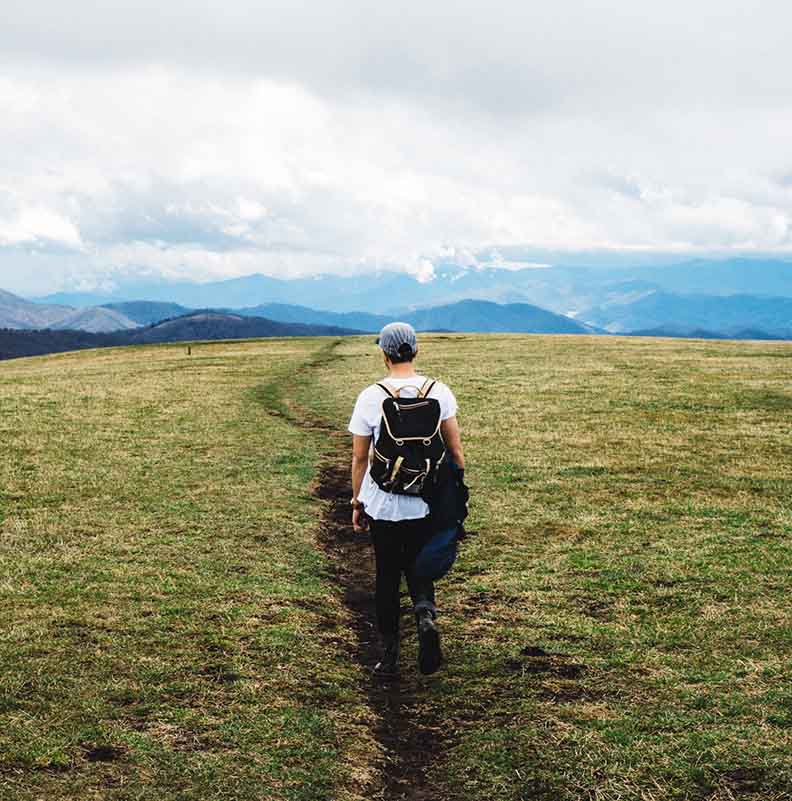A beginner’s guide to “meaningful travel”
Want to invest your holiday experiences with a bit more emotional charge? Meaningful travel is the way to go
By Charlotte Bean
To the uninitiated, “meaningful travel” may sound like the sort of thing gap-year students talk about when they finally get around to entering the workplace. “Yah, so I went to India and did some meaningful travel, right? It was sooooo am-azing? Like totally life-changing, yah?”
But the reality is that everyone can gain from a travel experience that leaves them with a different perspective on the world.
Done well, meaningful travel involves exploring unfamiliar places and gaining fresh insights. It produces a mental change, garnering experiences that leave you richer in spirit.
| Done well, meaningful travel involves exploring unfamiliar places and gaining fresh insights. |
Meaningful travel has been a part of my life since I was teenager. At 16, I went to India, spending time volunteering in a school and immersing myself in Indian culture. It was awful. I had undiagnosed glandular fever at the time, felt horrendous and ended up being put on an IV drip in Bahrain airport on the way home.
Despite this, my eyes were opened to all the things I didn’t know about the world. That is why, with my A-levels completed, I signed up to three months of volunteering in Nepal. Alone.
It’s now nearly 10 years on and that trip has unquestionably made positive changes to my life. As a teenager with anxiety, travelling alone to a different continent and entirely alien way of life was, quite frankly, beyond terrifying.
But the experience was truly amazing, with the best part of the trip being the friendship I made with the Nepalese lady, Jyoti, who ran the orphanage I stayed at. She showed me what it was really like to live there, rather than simply being a tourist. We still stay in touch.
 The trip massively boosted my confidence. Now, whenever I think I can’t do something, I remember that experience and all the amazing, brave things I did: travelling across the world alone at 18, taking part in a white-water rafting adventure, making new friends even when I was way out of my depth.
The trip massively boosted my confidence. Now, whenever I think I can’t do something, I remember that experience and all the amazing, brave things I did: travelling across the world alone at 18, taking part in a white-water rafting adventure, making new friends even when I was way out of my depth.
I also remember the people I met, the kindest people in the world, and the help I was given by strangers, people who had so much less than me.
Giving your travels a purpose can have truly life-changing results, as Ryan Trump recently discovered. He spent a fortnight in Peru, undertaking volunteer work to renovate a rural school before completing a trek along the Salkantay trail to Machu Picchu to raise money for a local charity.
“Machu Picchu had always been on my bucket list,” says Ryan. “When I saw the opportunity to go while making a difference by volunteering and raising money for a charity close to my heart, I jumped at it.
“It was a wonderful experience: I made new friends, experienced a new culture and completed the difficult challenge of not only fundraising, but completing the trek itself. It showed me just how much I am capable of.”
These types of experience don’t only affect you personally. They can also help you professionally: at interviews, I am always asked about my experience travelling as a teenager, even a decade on.
Peter Foy, director at Just Recruitment Group Ltd, highlights how these sorts of experiences can make you stand out from the crowd when applying for jobs. “Being able to add details about a meaningful travel experience to your CV shows you are confident, willing to learn and able to take on challenges,” he says.
“Employers are always looking for the applicant who has that something extra to give. An interesting travel experience could be the thing that catches their eye.”
Whether you choose to fundraise, volunteer, take on a physical challenge, immerse yourself in another culture, or combine all of these elements into one trip like Ryan, enrich your life (and employability) by giving meaningful travel a go.
Take it from me: you won’t regret it!
Three tips for meaningful travel
- Do your research, particularly if you are planning to volunteer. Of course, volunteering is an amazing thing to do, but it’s important that you do so ethically. Pod Volunteer is an award-winning, ethical company that organises a range of volunteer projects around the world.
- Immerse yourself in the culture of the place you are visiting. The best way to do this? Learn the language so you can communicate with the locals. DuoLingo is a free app that can help you learn the basics, with more than 30 languages available. Ask the locals where they eat and how they spend their time for a more authentic experience – you might even get a special invite!
- Be prepared to leave your comfort zone. Whether it’s travelling solo, leaving your phone behind for a day, exploring without a map, or trying something you’ve never done before. That’s what will really change you. Which is what meaningful travel is all about.
Published: 5 August 2019
© 2019 Just Recruitment Group Ltd
If you enjoyed this article, you may like: Fascinated by the 1960s Space Race? Read our brief history to find out more
You may also enjoy: How to switch careers in your 20s and 30s

